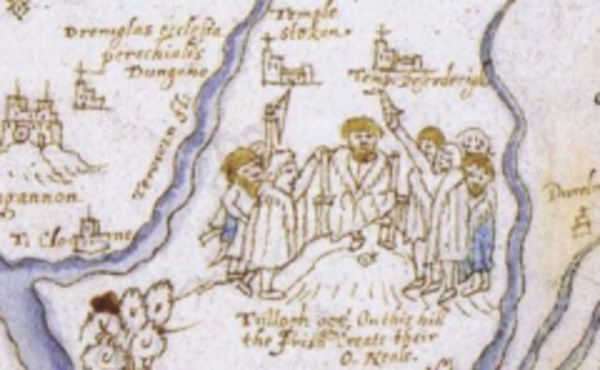“Much bloodshed & rebellion by contention for the seigniory”: Gaelic succession in early modern Ireland.
Ranfurly House
26 Market Square
Dungannon
Co. Tyrone
BT70 1AB
In early modern Ireland one of the main issues facing Gaelic clans was who should succeed the chieftain when he died. Early modern contemporaries often pointed out that succession was usually resolved by destructive internecine conflict within clans. One such contemporary was Richard Hadsor, an old English lawyer from the Pale. In 1604 he blamed Gaelic succession for ‘much bloodshed & rebellion by contention for the seignory.’ Phillip O’Sullivan Beare, an Irish exile living in Spain, lamented how ubiquitous and damaging these succession disputes were. In fact, he thought infighting over the leadership of clans was so harmful and pervasive that it was one of the main reasons why Ireland was conquered by England. In this talk, Matthew McGinty will examine how Gaelic succession worked in early modern Ireland and why it frequently resulted in violent wars of succession.
Speaker bio: Matthew McGinty, completed a BA in history and geography at the University of Galway in 2012 and from the same institution he received an MA in history in 2013. In 2020 he completed a PhD at Galway, and his research focuses on divisions within sixteenth century Gaelic society. His research also explores how the crown government exploited these divisions to advance their own military cause during the Nine Years’ War. He won the 2020 Chiefs’ and Clans’ Essay Competition prize for his entry titled ‘The tánaiste and the crown prince problem’. The winning entry was published in History Ireland (Vol 28, No. 6, 2020) and in Gaelic Ireland (c. 600-c. 1700), Lordship, Saints and Learning, (2021, pp.10-7). Matthew also won the Military Heritage of Ireland Trust essay competition in 2013 with an entry titled “The personalities of Hugh O’Neill and Red Hugh O’Donnell and their effect on military tactics during the Nine Years’ War”.


